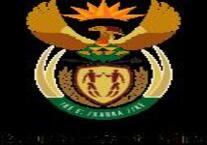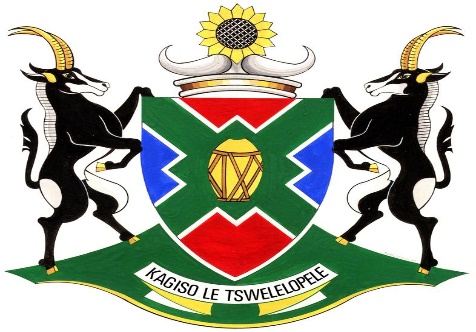Finance Committee
- Budget and Tariffs of the Annual Budget and make recommendations to the Executive Committee.
- Consider the Annual Budget’s compliance with the MFMA and alignment with the IDP and make recommendations to the Executive Committee.
- Evaluate the competency of financial services officials dealing with the budget in all units, take necessary steps to ensure compliance and competency levels and report to the Management Committee and if necessary the Executive Committee.
- Ensure the staffing capacity of the Budget Office is maintained at optimal levels and review the organizational structure of the unit to ensure effective management and control and make recommendations thereon to the Management Committee and if necessary the Executive Committee.
- Consider the Budget Policy and Procedures and make recommendations to the Executive Committee.
- Consider the monthly budget reports and statements and make recommendations to the Executive Committee.
- Consider the Mid-Year Budget and the Adjustments Budget and make recommendations to the Executive Committee.
Annual Financial Statements
- Timely preparation and legislative compliance of the Annual Financial Statements for Council
- Timeous submission of the Annual Financial Statements to the Auditor-General.
- Evaluate the capacity and effectiveness of the unit and report to the Management Committee and if necessary the Executive Committee.
Supply Chain Management
- Review the Supply Chain Management Policy and make recommendations to the Executive Committee.
- Consider the Supply Chain Management budget and make recommendations to the Executive Committee.
- Budget implementation.
- Document management and filing systems.
- Evaluate the skill and competency of the unit and ensure relevant competency levels and report to the Management Committee.
Tenders
- Legislative compliance in respect of tender procedures from advertisement to award stage.
- Implementation of the Supply Chain Management Policy in the Tender Process.
- Maintenance of Bid Registers and the publication thereof on the Municipal website and notice boards.
- Budgetary provision for all tenders prior to advertisement.
- Record keeping in respect of tenders.
Quotations
- Legislative compliance in respect of quotations, order notes and acceptance letters.
- Implementation of the Supply Chain Management Policy in respect of the quotation procedure.
- Budgetary provision for all goods/services procured by the quotation process.
- Record keeping in respect of quotations.
Creditors Database
- Monitoring that the Creditor’s Database is being updated and correctly utilised.
Expenditure Management
- Expenditure controls and procedures.
- Evaluate the skill and competency of staff and report to the Management Committee and if necessary the Executive Committee.
- Legislative compliance and statutory commitments.
- Monthly reconciliations.
Contracts Management
- Policies and procedures for management of contracts.
- System of delegation to ensure contract performance.
- Consider regular reports on the management of contracts and performance of the contractors and report to the Management Committee and if necessary the Executive Committee.
- Legislative compliance of any contract variations.
Payments
- Controls for payment of creditors.
- Trade Creditors Proof List.
- Implementation of controls and legislative requirements.
Remuneration
- Controls for payment of staff salaries, wages, allowances and benefits.
- Implementation of controls and legislative requirements.
Inventory Management
- Consider the Stores budget and make recommendations to the Executive Committee.
- Implementation of the budget.
- Implementation of inventory management and control measures.
- Evaluate the capacity and competency of the unit and ensure relevant competency levels and report to the Management Committee and if necessary the Executive Committee.
Revenue Management
- Review all polices in respect of Revenue Management and make recommendations to the Executive Committee.
- Implementation of the policies.
- Evaluate the capacity and competence of the unit and report to the Management Committee and if necessary the Executive Committee.
Billing
- Billing systems, meter reading performance and customer care.
Rates
- Collection levels of rates income.
Credit Control
- Evaluate the effectiveness of mechanisms, processes and procedures for credit control and report to the Management Committee and if necessary the Executive Committee.
- Implementation of procedures for Credit Control
Financial Control and Cash Management
- Evaluate the effectiveness of financial controls and systems and report to the Management Committee.
- Evaluate the capacity and competency of the unit and report to the Management Committee and if necessary the Executive Committee.
Cash Management
- Implementation of systems controls and management of cash.
- Cash-backed funding levels.
Financial Systems Management
- Evaluate financial systems and management thereof and report to the Management Committee.
- Implementation of financial systems management, control measures and legislative compliance.
- Consider monthly reports and make recommendations to the Executive Committee.
Reconciliations
- Reconciliations and legislative compliance.
Bylaws
- Consider bylaw reviews submitted by Legal Unit in respect of matters within the committee’s terms ofreference and make recommendations thereon to the Executive Committee.
- Consideration of bylaws within the committee’s terms of reference for adoption and publication.
Internal Audit and Compliance
- Monitor Budget expenditure and implementation of Internal Audit Programme.
Council and Committee support to Political Offices
- Mechanisms for community consultation.
- Consider motivations and budget for community consultation projects, for recommendation to the Executive Committee.
- Administrative systems and policies within the political offices.
- Budget implementation and expenditure.
- Receive reports from Ward Committees for recommendation to relevant structures.
- Secretariat services.





